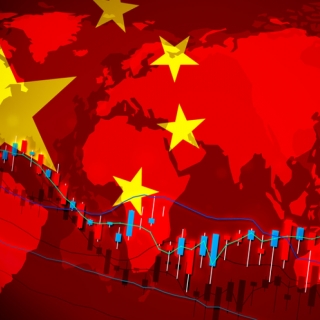


China has emerged as the top customer for Canadian oil shipped on the expanded Trans Mountain pipeline, ship tracking data showed, as a U.S. trade war has shifted crude flows in the year since the pipeline started operating.
China's new interest in Canadian oil comes as U.S. President Donald Trump's trade war has strained relations between longtime allies Washington and Ottawa. It also reflects the impact of U.S. sanctions on crude from countries like Russia and Venezuela.
Canada is the world's fourth-largest oil producer, but its main oil-producing province of Alberta is landlocked with limited access to tidewater ports. That means the bulk of Canadian oil - about 4 million barrels per day or 90% - is exported to the U.S. via pipelines that run north-south.
The C$34 billion ($24.40 billion) Trans Mountain is Canada's only east-west oil pipeline, carrying oil to the Pacific Coast where it can be loaded onto tankers for export. The expansion, which began operations on May 1, 2024, tripled the pipeline's capacity to 890,000 barrels per day and opened opportunities for Canadian oil along the U.S. West Coast and in Asian markets.
While oil is currently exempt from U.S. tariffs, Canada has sought to diversify its exports due to brief U.S. duties on its crude and Trump's threats to annex the country.
Canada shipped about 207,000 barrels per day (bpd) on average to China since the Trans Mountain expansion ramped up to full operations in June last year, ship tracking data on Kpler showed. That was a huge increase from an average of about 7,000 bpd in the decade to 2023.
The U.S. took about 173,000 bpd from the pipeline in the same period.
China's top spot as the TMX buyer defies some early expectations that the U.S. would be the biggest buyer of crude shipped via the pipeline, which is owned by the Canadian government.
Many expected its barrels to land on the West Coast versus Asia, which has access to cheaper Russian oil.
However, Trump's protectionist policies have in recent months made Canada more attractive to Chinese buyers, said Philippe Rheault, director of the China Institute at the University of Alberta.
China has also been reluctant to be over-reliant on Russian energy supplies, Rheault said.
"A lot of China's refineries are also mindful of U.S. sanctions, and so have been trying to diversify away from oil from Venezuela and other places," he added.
Source: Investing.com
Japan's annual inflation rate edged down to 2.9% in November 2025 from October's 3-month high of 3.0%. Core inflation stood at 3.0%, keeping the same pace as in October and aligning with estimates. Mo...
Goldman Sachs sees gold prices climbing 14% to $4,900 per ounce by December 2026 in its base case, it said in a note on Thursday, while citing upside risks to this view due to a potential broadening o...
The BRICS group of countries is increasingly being considered as an alternative for global diplomacy and cooperation amidst increasing tariff and protectionist policies from the United States. A numbe...
Applications for US unemployment benefits fell after a spike in the previous week, underscoring the choppy nature of the data at this time of year. Initial claims decreased by 13,000 to 224,000 ...
Annual inflation in the United States (US), as measured by the change in the Consumer Price Index (CPI), fell 2.7% in November, according to a report by the US Bureau of Labor Statistics (BLS) on Thur...
The Bank of Japan (BOJ) officially raised interest rates on Friday to their highest level in three decades. This move is a key part of the BOJ's efforts to end a long era of ultra-loose monetary policy and near-zero borrowing costs. As expected,...
The US dollar index fluctuated around 98.4 on Friday (December 19) and is expected to close the week relatively unchanged. Investors are still weighing the chances of a Federal Reserve interest rate cut next year, as inflation continues to decline...
Silver prices are showing a very strong trend today. Silver prices remain near all-time highs, driven by expectations of interest rate easing in the US and strong investor demand for this precious metal as an alternative asset amid economic...
 Fed Governor Christopher Waller said Wednesday that the Fed is in no rush to cut interest rates, given the current outlook, according to...
Fed Governor Christopher Waller said Wednesday that the Fed is in no rush to cut interest rates, given the current outlook, according to...
 Stocks fell slightly on Tuesday as traders digested the delayed release of the November's jobs report.
The S&P 500 fell 0.1%, while the Nasdaq...
Stocks fell slightly on Tuesday as traders digested the delayed release of the November's jobs report.
The S&P 500 fell 0.1%, while the Nasdaq...
 Nonfarm Payrolls (NFP) in the United States rose by 64,000 in November, according to a report from the U.S. Bureau of Labor Statistics (BLS) on...
Nonfarm Payrolls (NFP) in the United States rose by 64,000 in November, according to a report from the U.S. Bureau of Labor Statistics (BLS) on...
 European stocks closed lower on Tuesday, with the STOXX 50 down 0.5% and the broader STOXX 600 slipping 0.4%, as optimism around Russia–Ukraine...
European stocks closed lower on Tuesday, with the STOXX 50 down 0.5% and the broader STOXX 600 slipping 0.4%, as optimism around Russia–Ukraine...